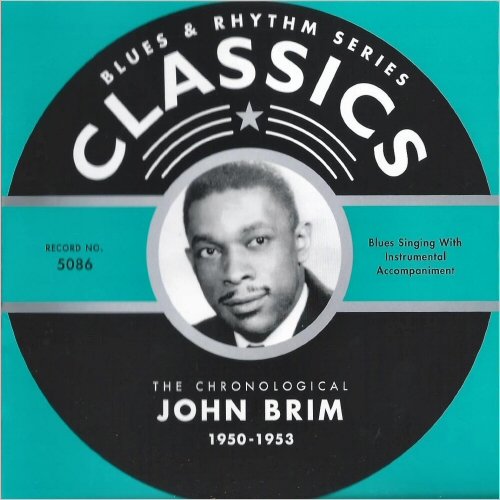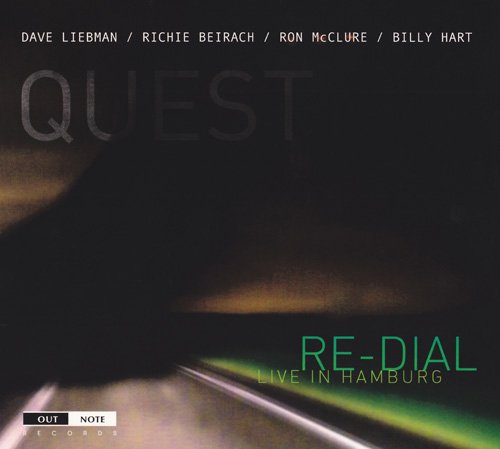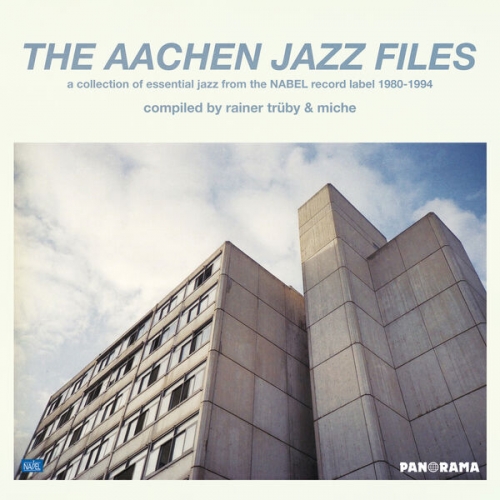John Brim - Blues & Rhythm Series 5086: The Chronological John Brim 1950-1953 (2004)

Artist: John Brim
Title: Blues & Rhythm Series 5086: The Chronological John Brim 1950-1953
Year Of Release: 2004
Label: Classics Records
Genre: Blues, R&B
Quality: FLAC (tracks)
Total Time: 64:24
Total Size: 274 MB
WebSite: Album Preview
Tracklist:Title: Blues & Rhythm Series 5086: The Chronological John Brim 1950-1953
Year Of Release: 2004
Label: Classics Records
Genre: Blues, R&B
Quality: FLAC (tracks)
Total Time: 64:24
Total Size: 274 MB
WebSite: Album Preview
01. Strange Man (3:05)
02. Mean Man Blues (2:56)
03. Dark Clouds (2:46)
04. Lonsome Man Blues (2:56)
05. Going Down The Line (2:45)
06. Leaving Daddy Blues (2:53)
07. Young And Wild (3:07)
08. I Love My Baby (2:38)
09. Trouble In The Morning (2:51)
10. Humming Blues (3:02)
11. Man Around My Door (3:10)
12. Hospitality Blues (2:29)
13. Hard Pill To Swallow (2:44)
14. Drinking Woman (2:56)
15. Don't Leave Me (No Name Blues) (2:56)
16. Moonlight Blues (2:53)
17. Rattlesnake (3:14)
18. It Was A Dream (3:02)
19. Lifetime Baby (3:06)
20. Ice Cream Man (2:48)
21. Tough Times (3:08)
22. Gary Stomp (2:48)
Guitarist John Brim was directly involved in the hard-boiled Chicago blues scene of the early 1950s, and worked in the same clubs and recording studios as Muddy Waters, Sunnyland Slim, Floyd Jones, Willie Dixon, and Jimmy Reed. In 2004, 22 of his earliest recordings were reissued in the Classics Chronological Series, providing blues lovers worldwide with unprecedented access to a special stash of favorites and rarities. Brim was a native of Kentucky who came to Chicago in the '40s by way of Indianapolis, and cut his first records in 1950 for the Fortune label up in Detroit with blues and boogie piano legend Big Maceo Merriweather. Because Merriweather had been partially paralyzed by a stroke, he and James Watkins shared the same keyboard. The vocalist on "Strange Man" and "Mean Man Blues" was Brim's wife Grace, a fine singer who doubled on harmonica. John Brim's next recordings were made for the Random label in St. Louis in 1951, with pianist Roosevelt Sykes. Grace, here billed as "Mrs. John Brim", sang "Going Down the Line" and "Leaving Daddy Blues."
Brim's first Chicago recording session took place on September 27, 1951 with Sunnyland Slim at the piano and Moody Jones playing bass. These were the first of a series of sides that Brim waxed for the J.O.B. label during this period. "Humming Blues" features a soulful, wordless group vocal that seems to have been cross-pollinated with some of the juju from "Rollin' and Tumblin'," that double-sided Parkway record made in January 1950 by Little Walter, Muddy Waters, and Baby Face Leroy Foster. Three sides cut in August 1952 featured "Grace Brim - Queen of the Harmonica" backed by her husband and Sunnyland Slim. The men also recorded with guitarist Eddie Taylor as the John Brim Trio. "Over Nite," the presumptive flipside of "Drinking Woman," does not appear here and seems to exist exclusively on certain Sunnyland Slim retrospectives put out by the Paula/Flyright labels. "(You Ain't Nothin' But A) Rattlesnake" was recorded for the newly founded Checker label in March 1953, with Little Walter blowing harmonica and Willie Dixon working the bass.
Legend has it the Chess Brothers canceled the release of "Rattlesnake" because it sounded too much like Big Mama Thornton's monster hit "(You Ain't Nothin' But A) Hound Dog" and they didn't want to get sued by Peacock Records. That's pretty ironic, given what happened with "Hound Dog" after Elvis Presley got a hold of it. Whether or not Brim's "Rattlesnake" was intended as an answer song' to Thornton's "Hound Dog" (which was recorded only seven months earlier), the two songs complement each other well. "Ice Cream Man," destined to become the conduit between Brim and rockers Van Halen and David Lee Roth, also features Little Walter. Brim's first recording date for the Parrot label took place in March 1954, with Grace Brim now slicing away at the drums and Jimmy Reed blowing the blues harp. With dour lyrics that mention layoffs and describe the effects of scarcity, "Tough Times" is Brim's all-time greatest exercise in gut-level social commentary, delivered with all the sobering verity of J.B. Lenoir's "Eisenhower Blues." "Gary Stomp," a rare Brim instrumental, was named for Gary, IN, that vast industrial landscape where Brim would live out most of the rest of his days. ~arwulf arwulf
Brim's first Chicago recording session took place on September 27, 1951 with Sunnyland Slim at the piano and Moody Jones playing bass. These were the first of a series of sides that Brim waxed for the J.O.B. label during this period. "Humming Blues" features a soulful, wordless group vocal that seems to have been cross-pollinated with some of the juju from "Rollin' and Tumblin'," that double-sided Parkway record made in January 1950 by Little Walter, Muddy Waters, and Baby Face Leroy Foster. Three sides cut in August 1952 featured "Grace Brim - Queen of the Harmonica" backed by her husband and Sunnyland Slim. The men also recorded with guitarist Eddie Taylor as the John Brim Trio. "Over Nite," the presumptive flipside of "Drinking Woman," does not appear here and seems to exist exclusively on certain Sunnyland Slim retrospectives put out by the Paula/Flyright labels. "(You Ain't Nothin' But A) Rattlesnake" was recorded for the newly founded Checker label in March 1953, with Little Walter blowing harmonica and Willie Dixon working the bass.
Legend has it the Chess Brothers canceled the release of "Rattlesnake" because it sounded too much like Big Mama Thornton's monster hit "(You Ain't Nothin' But A) Hound Dog" and they didn't want to get sued by Peacock Records. That's pretty ironic, given what happened with "Hound Dog" after Elvis Presley got a hold of it. Whether or not Brim's "Rattlesnake" was intended as an answer song' to Thornton's "Hound Dog" (which was recorded only seven months earlier), the two songs complement each other well. "Ice Cream Man," destined to become the conduit between Brim and rockers Van Halen and David Lee Roth, also features Little Walter. Brim's first recording date for the Parrot label took place in March 1954, with Grace Brim now slicing away at the drums and Jimmy Reed blowing the blues harp. With dour lyrics that mention layoffs and describe the effects of scarcity, "Tough Times" is Brim's all-time greatest exercise in gut-level social commentary, delivered with all the sobering verity of J.B. Lenoir's "Eisenhower Blues." "Gary Stomp," a rare Brim instrumental, was named for Gary, IN, that vast industrial landscape where Brim would live out most of the rest of his days. ~arwulf arwulf
![Jeremy Pelt - Our Community Will Not Be Erased (2026) [Hi-Res] Jeremy Pelt - Our Community Will Not Be Erased (2026) [Hi-Res]](https://www.dibpic.com/uploads/posts/2026-02/1771945030_folder.jpg)

![Eero Koivistoinen - For Children (1970) [2006] Eero Koivistoinen - For Children (1970) [2006]](https://www.dibpic.com/uploads/posts/2026-02/1771615516_ff.jpg)



![Sinedades - De par en par (2026) [Hi-Res] Sinedades - De par en par (2026) [Hi-Res]](https://img.israbox.com/img/2026-02/23/k9xyrl2p7m3kmcwozolhfnu7a.jpg)
![VA - 20 Years Into An Infinite Musical Journey (2025) [SACD] VA - 20 Years Into An Infinite Musical Journey (2025) [SACD]](https://www.dibpic.com/uploads/posts/2026-02/1771834929_ff.jpg)
